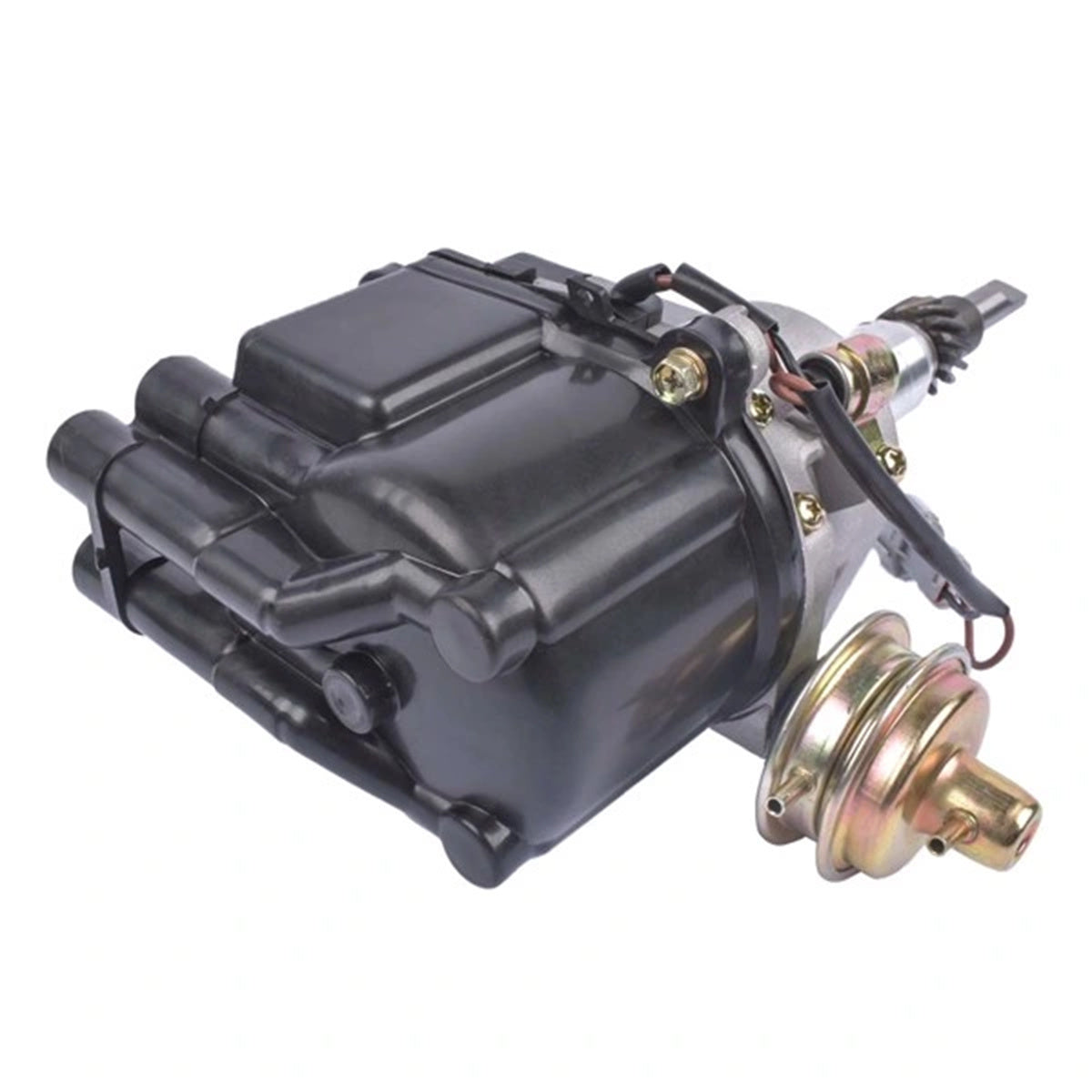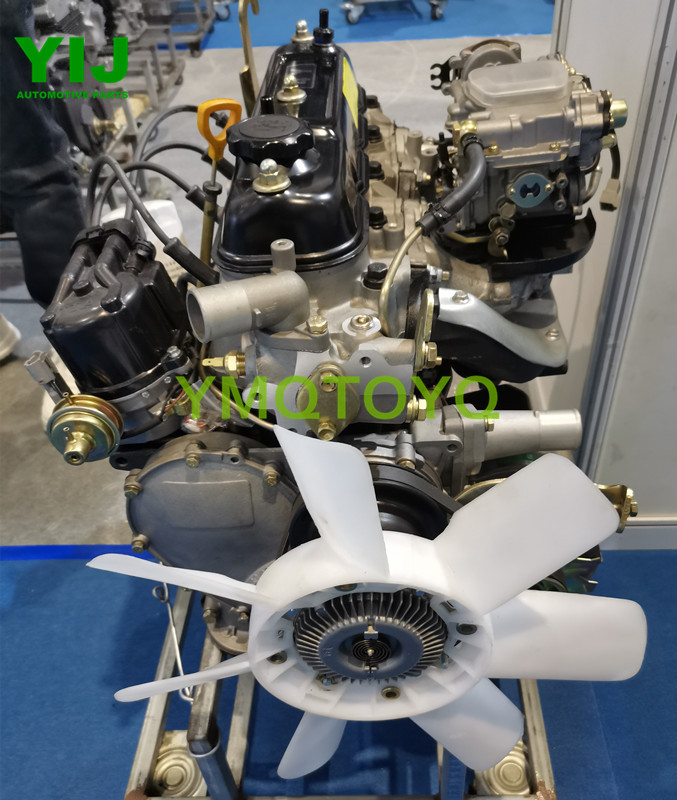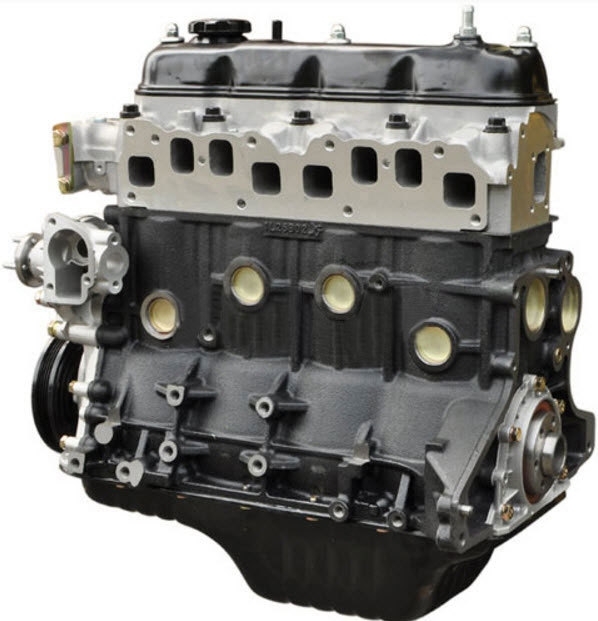How the 4Y Engine Powers Your Vehicle with Efficiency and Reliability
How the 4Y Engine Powers Your Vehicle with Efficiency and Reliability
Blog Article
Exploring the Various Kinds of Engine: Which One Fits Your Requirements?
Interior burning engines continue to dominate due to their reliability, while electric engines are obtaining grip for their sustainability. Hybrid engines use a flexible concession, and diesel engines stand out for their power in requiring applications.

Interior Burning Engines
Internal combustion engines (ICEs) are the foundation of modern transport, powering a large variety of lorries from automobiles to planes. These engines operate on the principle of converting gas right into power through a collection of controlled explosions within a burning chamber. The most usual sorts of ICEs include gasoline engines, diesel motor, and rotary engines, each made to satisfy details efficiency and effectiveness requirements.
Gasoline engines typically make use of trigger ignition, while diesel motor depend on compression ignition, causing distinct differences in fuel effectiveness and power output (4y engine). Rotary engines, or Wankel engines, offer a portable design and smooth operation, yet are less commonly utilized in mainstream applications
ICEs have gone through considerable developments in technology, consisting of the introduction of turbocharging and fuel shot systems, which boost general effectiveness and efficiency. In spite of their performance improvements, ICEs deal with raising scrutiny due to their environmental influence, specifically concerning greenhouse gas emissions.
Electric Engines
As issues about ecological sustainability and fossil fuel dependency grow, electrical engines have arised as an engaging alternative to internal combustion engines. These engines use electric motors powered by batteries or gas cells, providing a cleaner and much more reliable motive powers.
One of the primary benefits of electrical engines is their lowered exhausts. Unlike standard engines that melt nonrenewable fuel sources, electric engines create zero tailpipe discharges, significantly reducing air contamination and adding to improved public health and wellness. Furthermore, the effectiveness of electric motors often surpasses that of internal combustion engines, converting a greater percentage of power from the power source right into useful power for movement.
Electric engines are also noteworthy for their quiet operation, making them suitable for metropolitan environments. 4y engine. The simplicity of their style causes less moving parts, which can result in minimized maintenance prices and enhanced reliability in time
Nonetheless, challenges continue to be, consisting of battery production impacts, charging facilities, and variety restrictions. Despite these difficulties, the growing financial investment in electrical car modern technology and renewable resource sources factors towards an appealing future for electrical engines, placed to play an important role in the shift toward lasting transport.
Crossbreed Engines
Mixing the advantages of both standard and electrical inner combustion engines, hybrid engines represent a functional solution in the mission for effective and lasting transport. These engines integrate a gasoline or diesel motor with an electric motor, permitting boosted fuel effectiveness and decreased discharges contrasted to standard vehicles.
Hybrid engines operate in a number of settings, using the electric motor for low-speed driving and the interior combustion engine for greater rates or when more power is needed. This vibrant operation not only enhances gas economic situation yet likewise adds to a smoother driving experience. basics Regenerative braking is an additional critical feature, recording power commonly lost throughout stopping and redirecting it to reenergize the battery.

As consumers significantly prioritize eco-friendliness, crossbreed engines stick out as a practical selection, offering an efficient equilibrium of performance, effectiveness, and ecological duty. This flexibility makes them appropriate for city travelling and long-distance travel alike.
Diesel Engines
Effectiveness and power are trademarks of diesel engines, which have actually long been preferred for their robustness and fuel economic situation. These engines run on the concept of compression ignition, where air is compressed to a heat prior to gas is infused, sparking it without the demand for ignition system. This process enables diesel motor to attain greater thermal performance contrasted to gas engines, equating right into far better fuel mileage and reduced co2 discharges.
Diesel engines are particularly well-suited for durable applications such as vehicles, buses, and commercial equipment, where torque and longevity are critical. Their style usually includes more powerful components to stand up to the higher stress created throughout operation, causing longer life span and decreased maintenance prices.

Alternate Fuel Engines
While diesel engines have lengthy dominated the landscape of durable source of power, different gas engines are getting traction as feasible options for an extra lasting future. These engines make use of a variety of fuels, such as compressed gas (CNG), ethanol, lp, and hydrogen, aiming to reduce greenhouse gas exhausts and reliance on nonrenewable fuel sources.
One significant advantage of alternative fuel engines is their potential to reduced carbon footprints. CNG engines release less contaminants contrasted to traditional diesel engines, making them ideal for metropolitan transit systems and fleets seeking to improve air top quality. Ethanol, stemmed navigate here from biomass, not just reduces discharges yet additionally sustains farming economies.
Hydrogen fuel cells represent an advanced advancement in this world, providing zero-emission power through a chemical reaction in between hydrogen and oxygen. Nonetheless, obstacles such as facilities development and manufacturing prices stay obstacles to widespread adoption - 4y engine.
Conclusion
Internal combustion engines supply reliability, i was reading this while electric engines focus on sustainability and lowered upkeep. Crossbreed engines integrate the benefits of both, boosting efficiency, whereas diesel engines give remarkable power and torque for heavy-duty applications.
Crossbreed engines supply a functional compromise, and diesel engines stand out for their power in demanding applications. The most common kinds of ICEs consist of fuel engines, diesel engines, and rotary engines, each made to meet details efficiency and effectiveness needs.
Unlike traditional engines that melt fossil fuels, electrical engines produce zero tailpipe discharges, substantially lowering air pollution and contributing to boosted public wellness.Crossbreed engines operate in a number of settings, using the electrical motor for low-speed driving and the internal burning engine for higher rates or when even more power is needed. Crossbreed engines integrate the benefits of both, enhancing efficiency, whereas diesel engines provide superior power and torque for durable applications.
Report this page